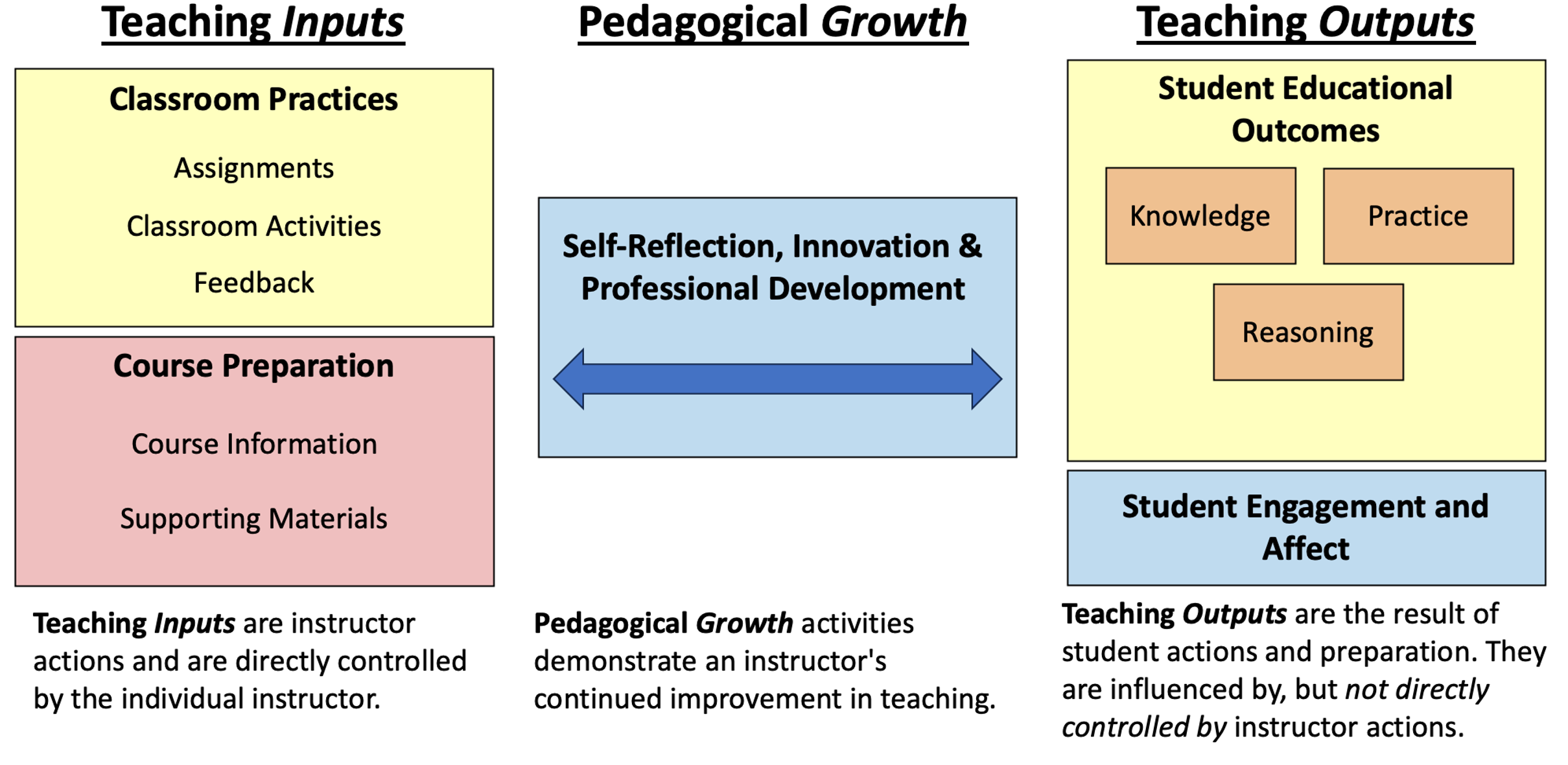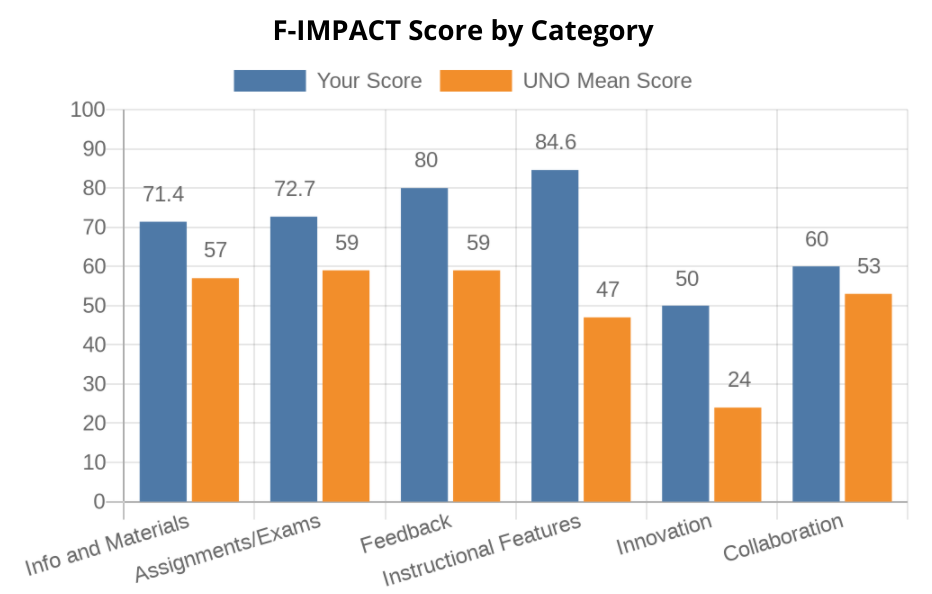High IMPACT Teaching at UNO
This project aims to improve how universities understand and support effective teaching. Using new faculty and student surveys (called F-IMPACT and S-IMPACT) and an interview-based tool (OBSTQL), the team will collect data on teaching practices, student experiences, and faculty-perceived barriers to instructional change at several universities. Together, these tools will help reduce bias in teaching evaluations, promote evidence-based instructional methods, and provide actionable feedback that strengthens teaching quality and student success across disciplines.
A Model for Teaching and Learning
This project uses the Inputs–Mediators–Outputs (IMO) model to better understand and evaluate teaching and learning. In this framework, teaching inputs such as classroom practices, course materials, and feedback are instructor actions that can be directly measured and improved. These inputs connect to pedagogical growth, which includes self-reflection, innovation, and professional development. Together, these factors influence teaching outputs such as student engagement, motivation, and learning outcomes, which are shaped by but not fully controlled by the instructor.

The project’s F-IMPACT (faculty) and S-IMPACT (student) instruments focus on the inputs and growth components, helping faculty and institutions identify which evidence-based teaching practices are being used, how they evolve over time, and how they relate to student experiences.
The Observed Barriers to Successful Teaching Questionnaire for Lecturers (OBSTQL) is a new survey designed to identify the challenges faculty face in adopting effective teaching practices. It gathers data on instructors’ perceptions of both personal and institutional barriers—such as time, resources, or classroom culture—that influence how they teach. By understanding these factors, universities can design better support systems that align with faculty needs and promote lasting improvements in teaching quality.
F-IMPACT
The Faculty Inventory of Methods and Practices Associated with Competent Teaching (F-IMPACT) was developed to measure how often instructors use evidence-based teaching practices across different course formats, including online, hybrid, and in-person classes. It evolved from the Teaching Practices Inventory, with extensive revisions for clarity, inclusivity, and applicability across disciplines. The instrument has been validated through multiple studies and correlations with classroom observations, allowing universities to map instructional styles and promote more effective, student-centered teaching.
Fill out the inventory for a course you teach and get instant results!
F-IMPACT Resources
Poster - Development and Validation of the F-IMPACT
Poster - F-IMPACT and Faculty Perceived Barriers to Use of Practices
Paper - How Expert and Inexpert Instructors Talk about Teaching
S-IMPACT
The Student Inventory of Methods and Practices Associated with Competent Teaching (S-IMPACT) is a student survey designed to capture which evidence-based teaching practices they observe in their courses. Adapted from the faculty version (F-IMPACT), it shifts course evaluations from opinions to guided observations, reducing bias and providing instructors with actionable feedback for improving teaching effectiveness.
S-IMPACT Resources
Poster - S-IMPACT Validity and Reliability
OBSTQL
The Observed Barriers to Successful Teaching Questionnaire for Lecturers (OBSTQL) is being developed to identify the personal and institutional challenges that affect how faculty teach. Based on interviews and prior research, it measures instructors’ perceptions of obstacles such as time constraints, resources, training, and departmental culture. The goal is to provide universities with data that helps align support and professional development with real faculty needs.
OBSTQL Resources
Survey - OBSTQL (under development)
For more information, please contact the project PI Dr. Christopher Moore
